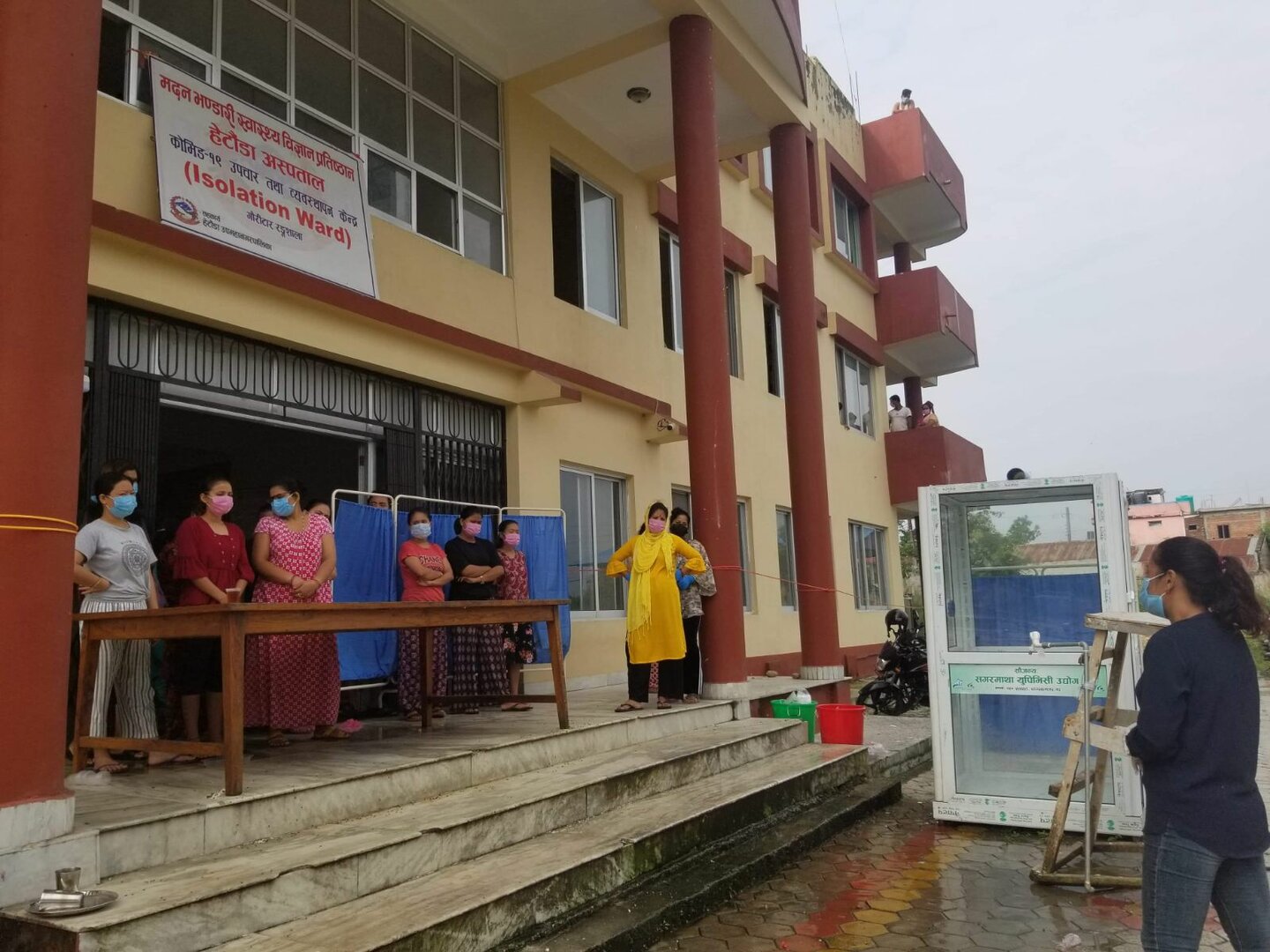“I am so thankful for your support! I feel like myself again.” Geeta (name changed), 42 years old from Bhadrapur, Jhapa, shares her positive experience with a psychosocial counselor during a follow up visit at home. Geeta had been working in Kuwait as a domestic helper for the past five years and returned to Nepal in October under the amnesty program granted by the Government of Kuwait. This, after she got arrested by the police a few months earlier for not having valid documents to stay in Kuwait.
Geeta[1] was among the thousands of Nepali migrants that received an amnesty on the conditions of returning home. As in many other countries in the Gulf, this policy was promoted as a way to control the spread of coronavirus and send undocumented workers back home. “During my stay in prison, I developed anxiety, lost my appetite and experienced sleepless nights. I was lucky to get this amnesty, but my situation did not improve after my return,” Geeta adds. “The psychosocial counseling that I received helped a lot. It included also some easy physical exercises and breathing techniques. All of this helped me get back to normal sleep and gain my appetite again.”
Due to the COVID-19 pandemic, many migrant workers got stranded in destination countries after losing their jobs. Geeta is one of the 129’737 people who returned to Nepal since the start of the Nepali government’s repatriation scheme - initiated to rescue migrants stranded in various countries across the globe - and the resuming of international flights. But the journey back home was not easy. Many workers had to wait (or are still waiting) in destination countries for months without job or pay. Some experienced difficulties in obtaining food and shelter. Those who managed to come back are often facing discrimination and prejudices and are portrayed as spreaders of the virus.
SaMi provides psychosocial counselling to migrant households since 2013. It supports in priority women left behind experiencing psychological and social stress that may result from their changed situation. A variety of factors may combine to create anxiety or depression, including domestic violence, social blame, alcoholism within the household, debts but also death or loss of contact with the migrant. Since the beginning of phase III (2018-2022), the SaMi project is directly implemented by the Government of Nepal at its different levels, in particular 156 local governments, which have started to provide migration related services by themselves.

During these recent months, the Safer Migration Project (SaMi), a bilateral initiative of the Governments of Nepal and Switzerland, implemented with technical support of Helvetas, has helped migrants’ households in dealing with the psychosocial consequences of the pandemic. The COVID-19 pandemic, the lockdown imposed in both countries of destination and Nepal, the difficult working and living conditions of many migrants stranded in countries of destination, the prolonged separation of families and the difficult conditions upon return, including quarantine and stigmatization, are all possible triggers of psychological stress for migrants and their families. As a result, the SaMi project has experienced an unprecedent surge in the demand for psychosocial support and has adapted its approach and the scale of its intervention to the new needs. Psychosocial counsellors were prepared to deal with the COVID-19 implications and possible trauma experienced by migrants and to provide services remotely per telephone. Over the weeks, SaMi has also increased its team of psychosocial counsellors to cover the growing demand. Trained psychosocial counsellors are mobilized to visit and support returnee migrants in quarantine. This implies visits to quarantine facilities and isolation centers managed by province and local governments and home visits, while respecting health and safety protocols.
Similarly, as SaMi witnessed cases of stigmatization of returnees and discrimination in accessing services, the project developed and broadcasts Public Service Announcements (PSA) through various radio stations. These PSAs aim both at raising awareness on stigmatization and its negative consequences as well as at informing about the existing support measures. SaMi also supports the radio program Desh Paradesh (meaning in English – “This is about the country and abroad”) to inform on the implications of the COVID-19 for migrants and debunk myths.
Meena from the municipality of Mithila was another returnee migrant receiving psychosocial counselling. She developed severe psychosocial problems after returning from her work in Kuwait. The return to her home community was particularly difficult as she was blamed for spreading the virus. Her family was stigmatized and their house marked and isolated from the rest of the community. When Meena returned home after her 14-day quarantine in Bardibas, she was nicknamed ‘corona’ by her neighbors, which added further stress on her. The psychosocial counselling she received from SaMi by phone helped her and after five sessions, she is feeling better and is no longer blaming herself. “My self-esteem has increased,” she confirms.
Meena and Geeta are among the 22’398 persons who have received psychosocial support since the start of the COVID-19 pandemic. Out of them, 8572 men and 1581 women received psychosocial “first-aid” while in quarantine.
The COVID-19 pandemic presents an unexpected scenario with far reaching social and psychological implications for Nepal’s population and in particular for migrant households. In this context, SaMi has rapidly adapted its activities and intervention modalities to the changing needs and was able to continue offering critical support to migrant households, while developing new approaches to cover the needs of returnee migrants.
The project services are deployed upon request from and in close collaboration with provincial and local governments, which also identify the areas with the biggest needs. The crisis has exacerbated the psychosocial implications of labour migration and highlighted the need to institutionalize adequate support mechanisms.



